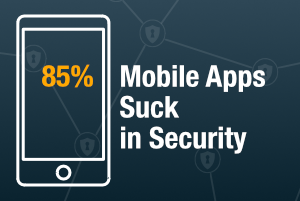Security Issues in Nissan’s Mobile App, NissanConnect, Could Potentially Put Users’ Data at Risk
Submitted by Filip Chytry, security expert, seculu.cz
As technology continues to advance, cars are increasingly becoming integrated into our mobile devices. Automotive brands are now releasing mobile apps, allowing users to connect their music streaming services, social networks, and search engines into the car’s system. One app that I’d like to highlight is NissanConnect, a mobile application from Nissan.
I would like to make it clear that issues discussed in this article are not unique to Nissan's app. They can be found in other apps out there. However, since I own a Nissan car, I had the chance to familiarize myself with the brand’s mobile app. I purchased a Nissan several months ago after reading many user reviews and taking into consideration various technological features of the car. Nissan, the car, is great, but I can't say the same thing about NissanConnect, the app. The companies responsible for its Satnav and the mobile app didn't perform sufficient QA testing. In my opinion, the lack of QA resulted in some security holes in the mobile application.

After installing and configuring NissanConnect, I encountered some issues and read more on reviews from other reviews. I found that other app users were also running into some of the same issues that I had. This led me to disassemble the app to take a closer look at what went into the build and the implementation of its security features.


I became unpleasantly surprised by some of the data that are shared with Airbiquity over HTTP protocol. The app has the permission android.permission.GET_ACCOUNTS, which means it can access other logins you have on your device, such as Facebook, Pandora, etc., and all login information that can easily be obtained on rooted devices. I was left disappointed that Nissan/Airbiquity had cast aside the level of security in this app.
I contacted Nissan Customer Support, explained the security concerns I had discovered, and offered to come up with a plan to improve these issues. Unfortunately, for legal reasons, Nissan’s company policy prevents them from accepting technically-related improvements from users.
I feel that it’s imperative for a company to be concerned about user privacy issues, prioritize the level of security available to protect customer data, and consider user feedback. Unfortunately, in this case, I don’t feel that Nissan’s response has reflected this attitude.
My experience with NissanConnect has inspired me to investigate and review additional automotive mobile applications, paying close attention to their security features and permissions. In general, it’s important to keep in mind that many mobile apps we use on a daily basis could carry security risks that intrude into our privacy and personal data.
To get a FREE security audit of your mobile applications, drop us a line support@teskalabs.com. We'll hunt and find security holes in your apps for you.
Additional reading:
- Custom Made vs. Off-The-Shelf Mobile Apps – The Issue of Security
- You Can Build Apps for the Apple TV, But Do You Know How to Do It Securely?
- We Know Why 85% of Mobile Apps Suck in Security. Do You?
- 7 Reasons Why Testing the Security of Mobile Applications Is Crucial for Enterprises
- The Top 5 Mobile Application Security Issues You Need to Address When Developing Mobile Applications
- What Is a Mobile Application Containerization, or Wrapper, and Why Must It Die?
- Security Is Driving the Adoption of Connected Cars
Most Recent Articles
- A beginner-friendly intro to the Correlator for effective cybersecurity detection
- Inotify in ASAB Library
- From State Machine to Stateless Microservice
- Entangled ways of product development in the area of cybersecurity #3 - LogMan.io
- Entangled ways of product development in the area of cybersecurity #2 - BitSwan
You Might Be Interested in Reading These Articles

We Know Why 85% of Mobile Apps Suck in Security. Do You?
In just the past 12 months, we’ve come across 100 mobile app projects at different phases. We’ve had conversations with more than 300 professionals active in the enterprise mobility space. We asked questions and uncovered the underlying problem that caused the current miserable state of mobile application security. It sucks. The answer doesn’t lie in technology but in us.
Published on May 19, 2016
The 8th version of the European Certificate Trust List (ECTL) for C-ITS has been released
The Joint Research Centre of the European Commision (EC JRC) released the eight edition of the European Certificate Trust List (ECTL) used in Cooperative Intelligent Transport Systems (C-ITS). L0 ECTL v8 contains five new Root CA certificates and one re-keyed Root CA certificate. Three out of five newly inserted Root Certificates are installations that run on the TeskaLabs SeaCat PKI software for C-ITS.
press
automotive
c-its
v2x
security
Published on September 16, 2021

Why Is Data Encryption Necessary even in Private Networks?
Securing data transferred between different endpoints is important not only through public networks but also in private networks. The data has to be protected if it is business critical or if modification or interception leads to a security incident with a high business impact.
Published on May 03, 2016